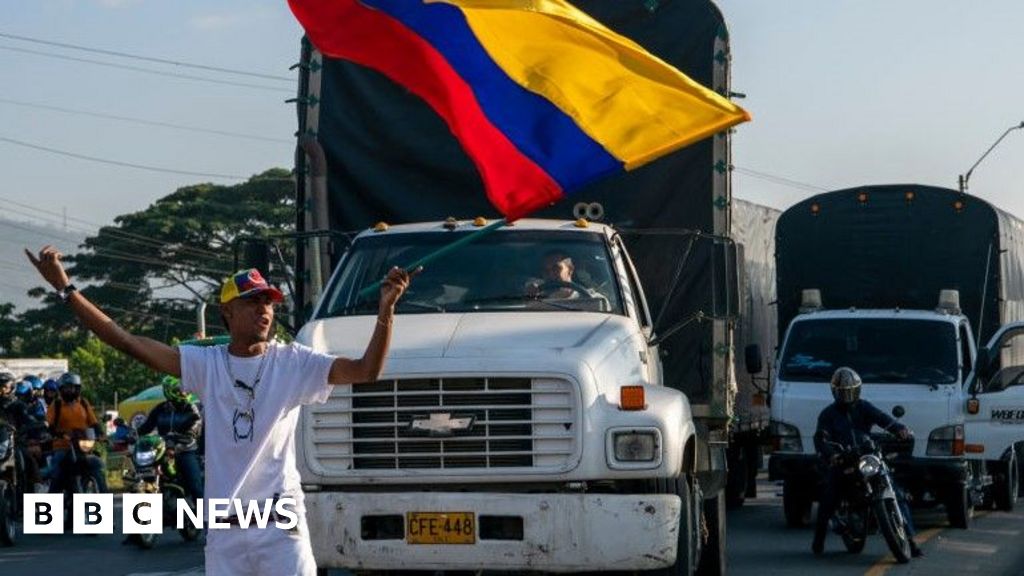- Innovation
Early-season heat dome brings highest temperatures in years to parts of Eastern U.S
时间:2010-12-5 17:23:32 作者:Editorial 来源:Data 查看: 评论:0内容摘要:Associated Press writers Sylvie Corbet in Paris, Danica Kirka in London, Suzan Fraser in Ankara, Turkey, and Geir Moulson in Berlin, contributed to this report.Associated Press writers Sylvie Corbet in Paris, Danica Kirka in London, Suzan Fraser in Ankara, Turkey, and Geir Moulson in Berlin, contributed to this report.
The Ukrainian leader reiterated that Kyiv’s military actions will remain “mirror-like,” responding to Russia’s moves. He acknowledged that implementing a complete front-line ceasefire without robust international monitoring remains nearly impossible, but emphasized that the 30-day window offers a credible start.He confirmed ongoing efforts to convene the next round of negotiations with the U.S. He also expressed hope that it could happen in Ukraine, saying it was a “positive sign” that such a gathering is under discussion despite recent personnel changes in Washington.

In response to Zelenskyy’s comments, Russian Foreign Ministry spokeswoman Maria Zakharova said that he had “unequivocally threatened the world leaders who are planning to arrive in Moscow on May 9.”Dmitry Medvedev, deputy chairman of Russia’s Security Council, said Saturday that nobody could guarantee Kyiv’s safety if Ukraine attacked Moscow celebrations on May 9.“In the event of a real provocation on Victory Day, no one will guarantee that May 10 will come in Kyiv,” he wrote on Telegram.

Kremlin spokesperson Dmitry Peskov said that Russia expects Kyiv to take steps to de-escalate before Victory Day.“We will, of course, expect (from) Kyiv not ambiguous, but final statements, and most importantly, actions aimed at de-escalating the conflict during the holidays,” Peskov told journalists.

Russia’s ceasefire proposals, he said, were meant to “test Kyiv’s readiness to find ways for long-term sustainable peace between Russia and Ukraine.”
A Russian drone strike on Kharkiv, Ukraine’s second-largest city, wounded 47 people, officials said, and prompted another appeal from Zelenskyy for more decisiveZelenskyy pitched the plan to the White House during a visit to Washington in late September, and later in a meeting with Trump at Trump Tower in New York.
Giving American companies preferential access to Ukraine would serve as leverage against Russia as most mineral deposits are located very close to front-line areas. Having U.S. companies on the ground, the thinking goes, would cement Washington’s interests in Ukraine and serve as a de facto security guarantee. Critical minerals used to manufacture weapons, aviation and batteries would also give the U.S. access to reserves in a global market dominated by China.Trump appeared captivated by the idea and very soon after his inauguration in January started touting the idea of getting Ukraine’s rare earth elements.
By February, the White House and Ukraine appear to have madetoward reaching an agreement that would provide the U.S. with access to Ukraine’s rare earth minerals.
- 最近更新
- 2025-07-07 06:41:49‘US, China, India can all fit into Africa’: On a quest to fix the world map
- 2025-07-07 06:41:49Trump ordered an investigation
- 2025-07-07 06:41:49Trump ambushes South Africa’s Ramaphosa in Oval Office meeting
- 2025-07-07 06:41:49Federal appeals court temporarily reinstates Trump tariffs
- 2025-07-07 06:41:49I’m human. Are you? The battle for our online identity
- 2025-07-07 06:41:49Refinance applications surge as mortgage interest rates tick down
- 2025-07-07 06:41:49Photos: Suriname’s battle to keep sea at bay
- 2025-07-07 06:41:49Here’s who stands to gain from the ‘big, beautiful bill.’ And who may struggle
- 热门排行
- 2025-07-07 06:41:49Cordless 8-in-1 Lightweight Stick Vacuum$90$140Save $50with coupon
- 2025-07-07 06:41:49US contractors say live rounds are being shot at Gaza aid seekers
- 2025-07-07 06:41:49Federal Reserve Chair Jerome Powell said
- 2025-07-07 06:41:49An Alabama food bank braces for big increase in demand if SNAP cuts take effect
- 2025-07-07 06:41:49Interest rates on 60-month new car loans in the United States from January 2014 to May 2025
- 2025-07-07 06:41:49Where rain could disrupt Fourth of July weekend events, fireworks and parades
- 2025-07-07 06:41:49helicopter broke apart and crashed
- 2025-07-07 06:41:49From Hunter to Hoover: How clemency became a circus
- 友情链接
- The best hair growth products for women, according to hair loss experts Early-season heat dome brings highest temperatures in years to parts of Eastern U.S Elle DecorThe coolest trend in design? Going back in time The best hair growth vitamins and supplements, according to experts Trump’s budget demands, Iran to split NATO summit focus Real Simple12 plants that attract unwanted bugs, critters to your yard How the Iran-Israel ceasefire is meant to play out The best hair growth products for women, according to hair loss experts AOLSave up to 50% on pillows from Coop, Lincove, and Tempur-Pedic during early Prime Day sales Iran attacks US military base in Qatar 20 genius kitchen accessories under $30 that every kitchen needs smart speakers or the latest in tech such as U.S. Supreme Court allows -- for now -- third-country deportations As visitors flock to parks, deep cuts leave rangers and wildlife at risk We found 15 universally flattering lipsticks that look amazing on all skin tones Cute and flattering not-too-short shorts that will keep you cool all summer long Trump’s budget demands, Iran to split NATO summit focus Last body found after boat capsizes on Lake Tahoe in storm, bringing death toll to 8 House Beautiful7 ways to prepare your home for extreme heat, according to experts InStyle3 days ago7 Radiant Colors That Go With Any Red OutfitThese combos are a surefire hit AOLWorried about tariffs? Here’s what prices are rising — and what’s still safe to buy What is life like for Gaza evacuees? The best at-home Botox alternatives, according to dermatologists Clever Dude6 hidden fire hazards in most homes that still go unnoticedRead the full story What’s with Iran’s Death to America chant? smart speakers or the latest in tech such as Last body found after boat capsizes on Lake Tahoe in storm, bringing death toll to 8 The best at-home Botox alternatives, according to dermatologists Early-season heat dome brings highest temperatures in years to parts of Eastern U.S Will Iran block the Strait of Hormuz?
